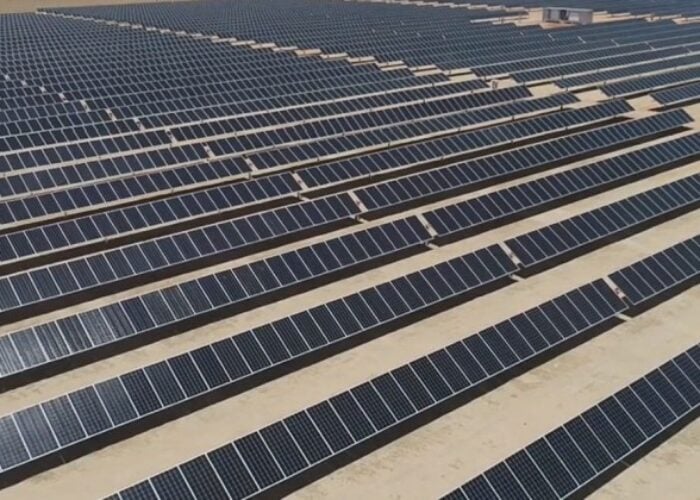
Spanish solar developer Solaria has signed off a financing framework with the European Investment Bank (EIB) for up to €1.7 billion (US$1.8 billion) towards the deployment of 120 solar PV plants across Spain, Italy and Portugal.
The cumulative capacity of the plants will be around 5.6GW, Solaria said, with an estimated annual power output of around 9.29TWh once they reach operations by the end of 2028.
Try Premium for just $1
- Full premium access for the first month at only $1
- Converts to an annual rate after 30 days unless cancelled
- Cancel anytime during the trial period
Premium Benefits
- Expert industry analysis and interviews
- Digital access to PV Tech Power journal
- Exclusive event discounts
Or get the full Premium subscription right away
Or continue reading this article for free
More than a third of the projects will be deployed in “less developed regions”, according to Solaria; “regions that have a GDP per capita that is less than 75% of the EU average”.
“This operation contributes to foster the energy transition in the European Union while promoting economic and employment growth in less developed regions in Spain, Portugal and Italy, which have great potential for renewable energy,” said EIB vice-president Ricardo Mourinho Félix.
The financing will be delivered through a long-term series of loans from the InvestEU programme, the first of which has been signed for a total of €278 million (US$294 million) to develop approximately 1.08GW of PV projects. Financial institutions will be able to participate in the loans under the framework financing.
The loan is a part of the REPowerEU plan to end the continent’s dependence on imported fossil fuels, for which the EIB increased its available funding by €15 billion (US$15.8 billion) in July. It also broadened the scope of eligible projects for the financing. The same month, the EIB made a similar REPowerEU loan to Spanish oil major Repsol for the development of 1.1GW of solar projects in Spain.
“This important operation is a great demonstration of InvestEU’s ability to meaningfully support Europe’s transition to climate neutrality and energy independence,” said commissioner for the economy, Paolo Gentiloni. “This is good news both for the climate and for our economy: it will not only help to power millions of households with clean energy, but also create thousands of jobs in the construction phase in the relevant regions.”
PV Tech Premium published a deep dive into the solar skills shortage in the UK and EU, as well as the US, this week.
Recently the EU has been experiencing an influx of cheap Chinese solar modules that have pushed prices down to dangerous levels for onshore manufacturers and companies, according to the European Solar Manufacturing Council. Simultaneously, energy thinktank Ember found that solar PV was the driving force in the EU’s renewable energy growth in the first half of 2023.






